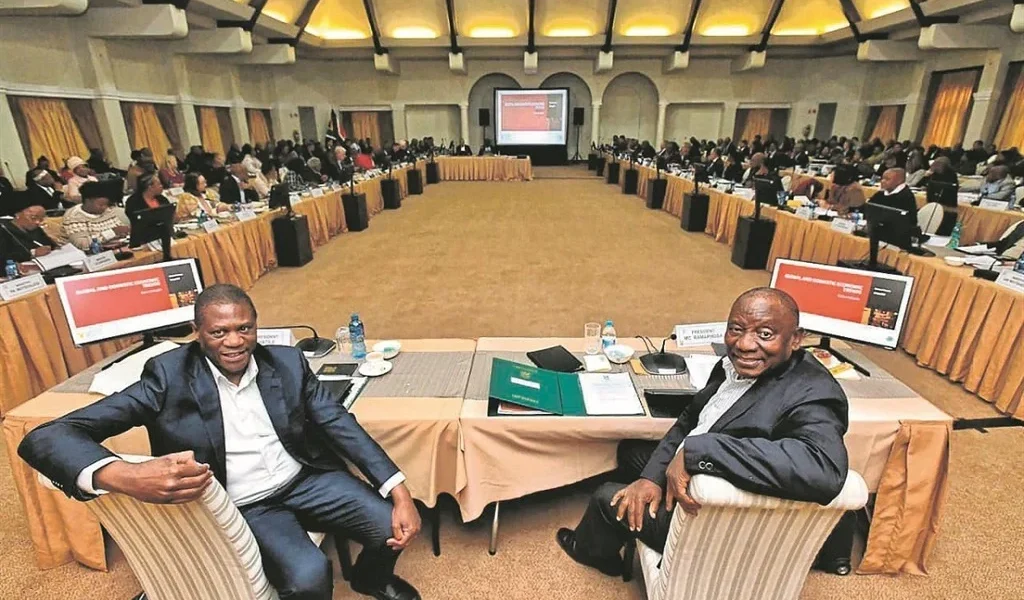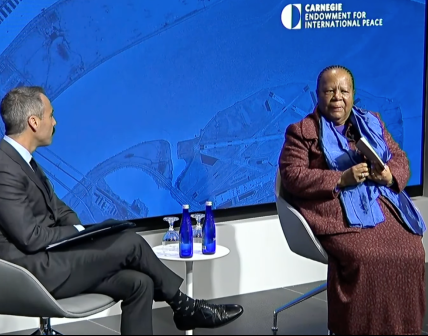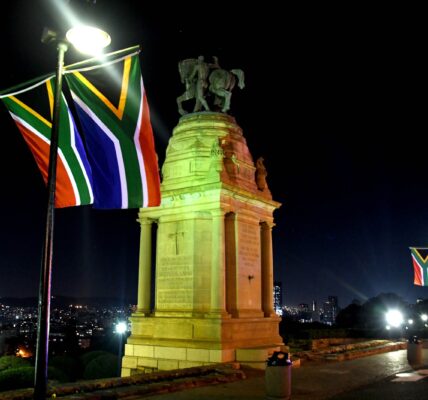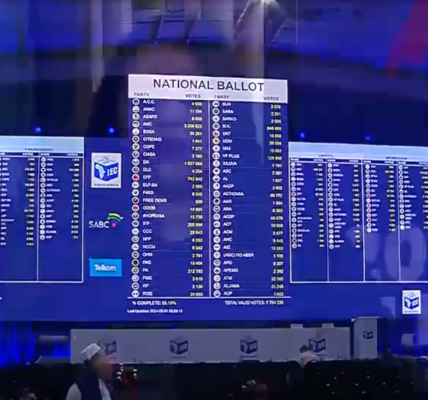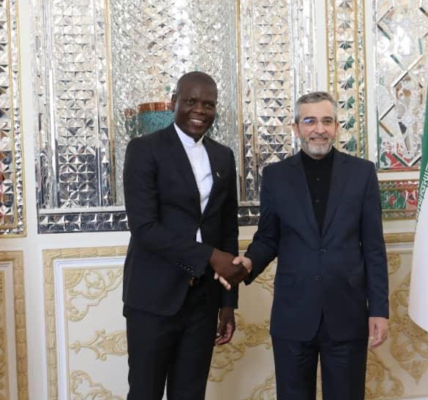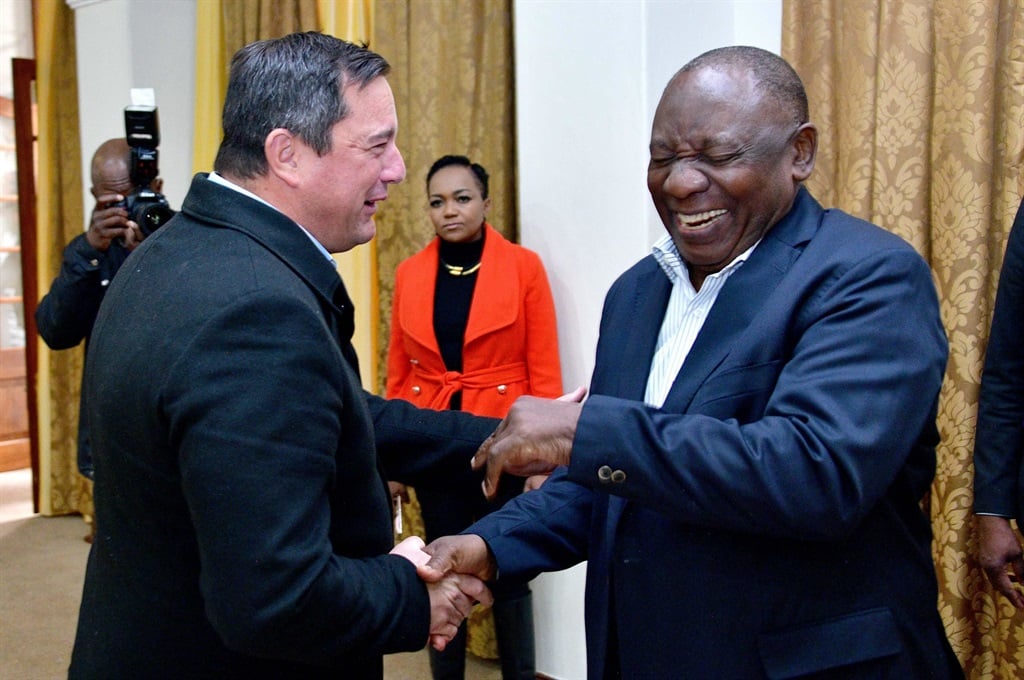
Business sentiment within the South African business sector has returned to levels not seen since 1994 when the Inkatha Freedom Party (IFP) chose to participate in the country’s first democratic election, according to a leading political analyst. Prof. Theo Venter from the University of Johannesburg, however, emphasised that there is an expectation for the new Government of National Unity (GNU), formed by the majority African National Congress (ANC) and opposition parties like the Democratic Alliance (DA), to “do the right things.”
In an interview with National Security News, Venter also supported the idea of a “clearing house” mechanism to prevent ideological differences among coalition parties from threatening the GNU’s stability.
Venter referenced a study from the University of Stellenbosch’s Bureau for Economic Research, which has tracked the influence of politics on business sentiment for the past 37 years. Historically, it has mirrored economic conditions—negative during downturns and positive in good times—until the political landscape shifted with Jacob Zuma’s presidency in 2009, when “the linkage between the economy and politics separated.” Following this shift, negative perceptions of South Africa’s economy continued to dominate.
“When Ramaphosa took over, there was a brief surge known as the ‘Ramaphoria’ era. However, that optimism was short-lived, and drove negativity to levels far below previous lows.”
Since the inception of the Government of National Unity, there has been a notable shift in sentiment from negative to positive, unprecedented in the last three decades. “I had to search over 37 years to find a time when we saw such a positive change in attitude. The last time this occurred at a similar level was when the IFP announced its participation in the 1994 election,” Venter explained.
He added that there is considerable pressure on the government to “do the right things” in response to rising public hopes.
While sentiment toward the GNU remains high, recent disagreements on key policy issues—such as the BELA Bill aimed at reforming the education system, national healthcare policy, and foreign policy—have tested the government’s unity.
Cooperation at the local government level between the ANC and the DA has deteriorated with the ANC supporting a no-confidence motion that led to the ousting of DA Mayor Cilliers Brink in the City of Tshwane.
Clearing House needed for differences in the GNU
Dfferences in agriculture, foreign affairs, education, rural development, and land reform reveal the specific ideological views of the political parties involved, according to Venter.
“The ideological differences between political parties are nowhere more apparent than in the portfolio of agriculture. John Steenhuisen was appointed as Minister of Agriculture, and that department was split into two: land reform on one side and agriculture on the other. Land reform and rural development were given to a member of the PAC. If you’ve ever seen a political divide, it is certainly between the DA and the PAC on those two topics. Therefore, we need a clearinghouse; otherwise, the differences between the partners would surface in Parliament, making the co-governing partners appear like opposition parties, or they would typically emerge in the media.”
He noted that for the past 30 years, the ANC National Executive Council (NEC) has functioned as a clearing house, translating decisions into actions implemented by the Cabinet. However, this system has diminished as the NEC now represents only 39.8% of the electorate.
An example of a policy that could be referred to the clearing house is the National Health Insurance legislation. “The ideologues in the ANC want to implement this model dogmatically, while the DA opposes it. A middle ground must be found,” he said.
These discussions can’t be effectively conducted in Parliament or the Cabinet; instead, with political clearing house the ANC can invite the DA and other opposition parties to discuss their differences. “They could even utilise independent facilitators. We can address crises reactively, but for constructive outcomes, a permanent commission in the Presidency may be needed.”
Venter points out successful examples in other countries, like Germany, where each political party has its own research institute, such as the Konrad Adenauer Institute. Over time, he says, these issues must evolve into a compromise position. “A good compromise is typically one where both parties are somewhat unhappy with the outcome,” he noted.
MK party is in trouble if anything happens to Zuma, EFF slowly falling apart
Venter commented on the MK party of Jacob Zuma, which, he says, began in “a very awkward way without the formal processes typical for a political party. “It is the only party that officially says, when we grow up, when we mature, we want to be the ANC. In other words, they don’t want to follow a specific political policy to get control of the country. They want to be the ANC. It’s weird to have a political party like that.”
The MK party, he says is so closely aligned to President Zuma, if anything happens to him or changes about him, “I think the party is in trouble.”
Regarding the Economic Freedom Fighters (EFF), Venter remarked that the party is “slowly but surely falling apart.” He noted that while the EFF is performing well in student elections and controlling several university student representative councils, they have essentially adopted the role that the ANC Youth League used to play 20-30 years ago.

